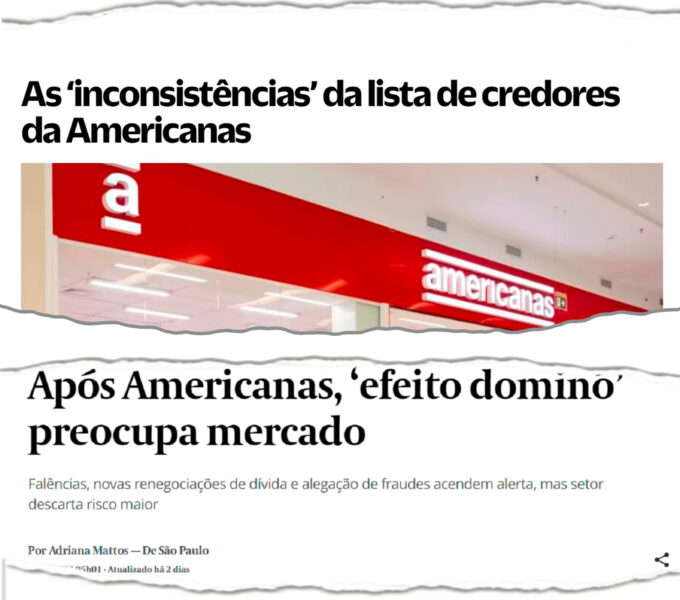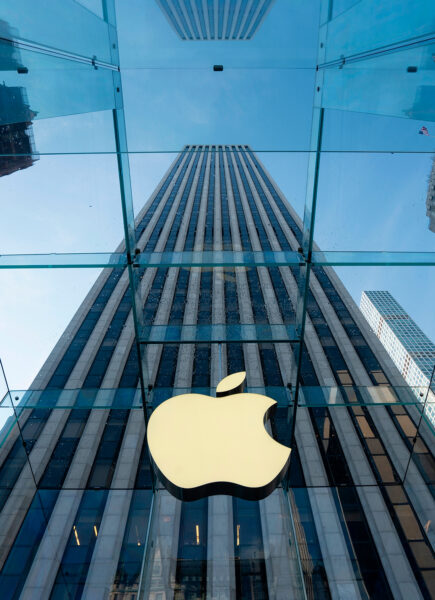
Throughout a business trajectory, there will always be difficult moments and crises, which can be caused by external issues, beyond the control of the company, or by internal factors, from operational failures, strategy errors, controversial positions of leaders, issues related to demands ESG and even bad faith and sabotage, to name a few. These are more frequent events than we usually think, especially in long-lived organizations.
Sometimes the damage done to reputation is so severe that it cannot be mitigated with technical expertise, relationships or market experience, no matter how good they are.
Sometimes the damage done to reputation is so severe that it cannot be mitigated with technical expertise, relationships or market experience, no matter how good. The company loses what can be called a “license (from society) to operate”. The Brazilian contractors involved in Lava-Jato, for example, suffered such a severe damage to their reputation that some large companies in the sector opted to remodel the business with new brands and start over from scratch in terms of their relationship with their stakeholders.
There is no doubt that the entire Brazilian infrastructure sector was affected in some way and, even companies that avoided the scandals, were forced to reinforce their compliance rules and codes of conduct and, furthermore, communicate this to their audiences with great emphasis. As almost everything has two sides, those with a solid reputation had advantages and won bids based on this differential.

Reproductions from Brazil Journal – 01.25.2023 (at the top) and Valor Econômico - 02.13.2023 (below)
Now, with the crisis at Lojas Americanas, a similar situation is occurring, with other retail brands having to take measures due to doubts that have arisen in relation to the consistency of the financial statements in the sector. The retailer's negative exposure also had repercussions on the stock market value of several publicly traded companies, banks, investment managers, auditing firms and financing rates, which rose.
“Companies with strong reputations are good not only for themselves, but for the market as a whole. You should never want or encourage a competitor's image and reputation crisis, because it could affect the entire sector and even the economy as a whole, inside and outside the country”, says Anik Suzuki, CEO of ANK Reputation.
With a strong reputation, companies regain the trust of stakeholders
The benefits of a strong reputation are also evident when the company faces a negative event and the trust of its stakeholders is temporarily shaken. Large companies, assiduous in valuation and recognition rankings, record moments of difficulty throughout their trajectory

Apple is among the most valuable in the world – Photo: Shutterstock
Apple is among the greatest examples of resilience. It faced dramatic moments in 1990, when Steve Jobs left the company (he would return later), it reacted in the following decade and, since the launch of the iPhone, in 2007, it returned to the top of the most valuable in the world, even surpassing the death of Jobs , which carried in its own image attributes relevant to the brand's reputation.
In 2023, despite the recession in the technology sector, which caused it to lose the equivalent of US$ 57.6 billion in brand value in the year, it remains in second position in the Brand Finance Global 500 study, one of the most recognized international rankings, preceded by Amazon. Even with times of downturn, Apple maintains millions of loyal consumers around the world, who assure it breathes again with every shake-up of the business. That's reputation.
.
Well-prepared companies add a strategic dimension to their reputation
Among the companies that are better prepared to face adversity and even grow in turbulent scenarios, are those that have been concerned with understanding the impact of corporate reputation on the business, as well as its strategic dimension. That's because each point of contact with each stakeholder is important to build reputation – and to preserve what has already been achieved.
Reputation building has to permeate the entire organization, as it takes place day by day, with consistency between what the company does inside and outside, in all its relationships. It involves having a quality product, satisfied customers, ethical behavior in all relationships, establishing win-win relationships with the value chain, taking care of the internal environment and its people, among others.
A survey by consultancy Weber Shandwick, in partnership with KRC Research, launched in 2020 reiterated that reputation is multifactorial, in addition to being an essential asset for the company's financial results. The main finding of the study The State of Corporate Reputation in 2020: Everything Matters Now is that a company's reputation is influenced by several factors, with none having a greater impact than all the others. This lack of distinction suggests that companies can no longer focus on and prioritize just a few key reputation factors. Everything matters: from employee performance to product quality, from financial performance to corporate culture.

Magalu: Company and shareholder accumulate recognition – Photo: Disclosure
Magazine Luíza is an example of a multifactorial reputation: it is one of the companies listed on the stock exchange that has most appreciated in the last decade (more than 1,000% between 2011 and 2020, data from Economática consultancy), it is the best retail company to work for ( GPTW 2022) and its institutional face, businesswoman Luiza Trajano, accumulates, for five times, the first position as leader of businesses with the best reputation in Brazil, according to the ranking of the Spanish consultancy Merco (2022 edition).
.
“When the company has a clear value proposition, meets the needs of the market, relates and communicates consistently with its stakeholders, it has a solid reputation, which keeps it growing, making a profit and at the top of recognition and appreciation rankings . It also has a greater possibility of funding innovation and disruption to remain relevant in difficult situations, as well as changes in economic cycles and the behavior of its stakeholders”, reinforces Anik.
Lucia Ritzel is Consultant Mr. and Head of Content at ANK Reputation
lucia.ritzel@ankreputation.com.br



